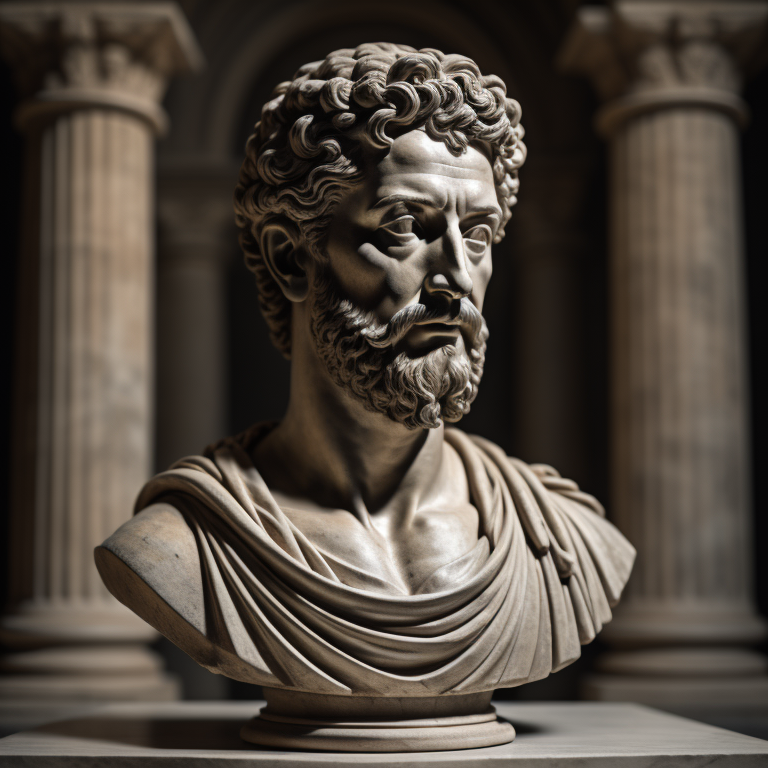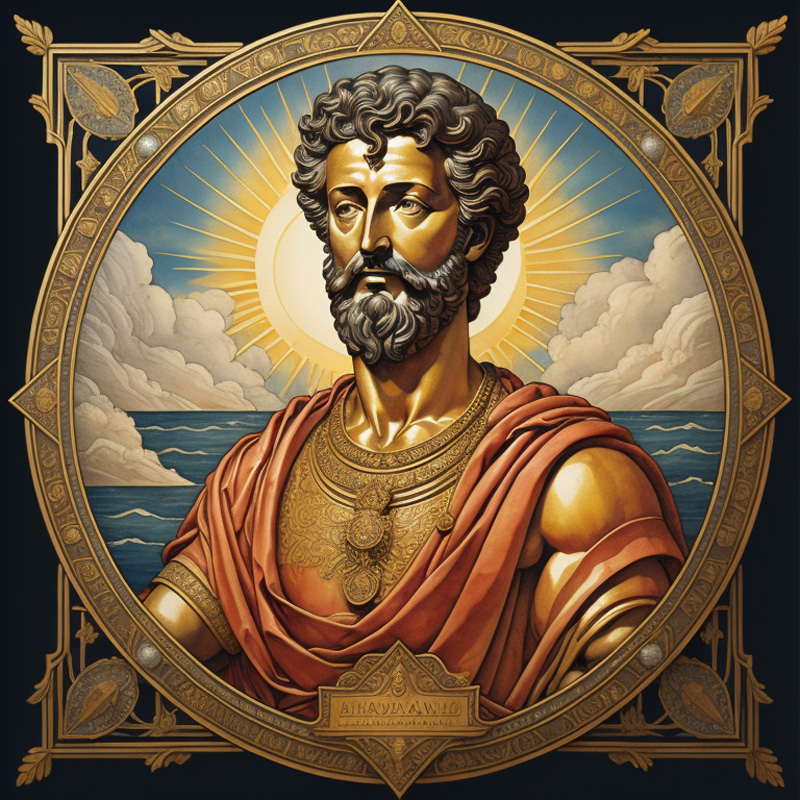
Marcus Aurelius
Marcus Aurelius: Exploring his Philosophy
Marcus Aurelius (121-180 AD)
Let’s enter the world of ancient Rome and meet the philosopher emperor, Marcus Aurelius. This wise ruler lived between 121 and 180 AD and left a deep mark on history not only as a leader, but also as a thinker. His philosophical ideas continue to inspire current generations.
His main philosophical ideas:
Marcus Aurelius was a Roman emperor and Stoic philosopher who lived between 121 and 180 AD. His main philosophical ideas are based on the acceptance of what cannot be changed, the search for virtue, and the importance of serenity in the face of adversity.
His main philosophy in one sentence:
Life is short, so live according to nature.
Explanation of this philosophy to a child between 7 and 10 years old:
Imagine that you have a ball. You can play with it in many ways: you can throw it, kick it, bounce it. But if you let it fall to the ground, you can’t do anything to stop it from falling. The same thing happens with the things that happen in life. Sometimes we can’t control what happens, but we can control how we react. We can choose to be positive and accept things as they are, or we can be negative and complain. Marcus Aurelius tells us that it is best to choose the first option, because life is short and it is not worth wasting it on things that we cannot change.
Explanation of this philosophy to an adult:
The philosophy of Marcus Aurelius is based on the idea that the universe is an ordered system and that everything that happens has a reason for being. Therefore, it is important to accept what cannot be changed and not waste energy on regrets. Instead, it is better to focus on the things you can control, such as your own actions and thoughts. If one lives according to nature, that is, if one adapts to the things that cannot be changed and does what is in his power to be a good person, then he can achieve happiness and inner peace.
Positive aspects
The philosophy of Marcus Aurelius teaches us to accept what cannot be changed. This can be very liberating, as it allows us to stop worrying about things that are not in our control. It teaches us to seek virtue. This means living in accordance with our values and principles, which gives us greater inner peace. It teaches us the importance of serenity in the face of adversity. This allows us to face problems calmly and rationally, and helps us not fall into despair.
Negative aspects
The philosophy of Marcus Aurelius can be a bit fatalistic, since it teaches us that we cannot control everything that happens to us. This can be difficult for some people to accept. It can also be a bit cold and dispassionate, as it does not teach us to express our emotions naturally.
real-life problem
A real-life problem that can be solved with the philosophy of Marcus Aurelius is anxiety. Anxiety is a condition characterized by excessive worry about the future. The philosophy of Marcus Aurelius teaches us to accept the present and not worry about what may happen. This can help people with anxiety reduce their stress level and live a calmer, more serene life.
Solution to the problem
The solution to the problem of anxiety using the philosophy of Marcus Aurelius is as follows:
Recognize that you cannot control the future. Focus on the present and what you can control. Live according to your values and principles. Be patient and understanding with yourself. Do not compare yourself to others. Seek professional help if necessary. you need.
A philosophy opposite to that of Marcus Aurelius: Epicureanism
Epicureanism
Epicureanism is a school of philosophy founded by Epicurus in the 4th century BC. Its main ideas are based on the search for pleasure and the absence of pain.
Positive aspects
Epicureanism teaches us to enjoy the simple pleasures of life, such as good food, good wine, and the company of friends. It teaches us not to worry about things that are not in our control, such as death and destiny. .It teaches us to live in the present moment and not to be bitter about the past.
Negative aspects
Epicureanism can be hedonistic, meaning it can lead us to seek pleasure at all costs, even if it means harming others. It can also be individualistic, meaning it can lead us to ignore the needs of others. It can be a little superficial, since it does not teach us to search for the meaning of life.
Comparison with the philosophy of Marcus Aurelius
The philosophy of Marcus Aurelius is more Stoic than Epicurean. Stoicism focuses on acceptance of what cannot be changed, while Epicureanism focuses on the pursuit of pleasure. The philosophy of Marcus Aurelius may be more suitable for people seeking a more serene and balanced life, while Epicurean philosophy may be more suitable for people seeking a more hedonistic and carefree life.

Sources
Books:
- Meditaciones de Marco Aurelio.
- El estoicismo de Marco Aurelio de Pierre Hadot.
- El arte de la vida feliz de William B. Irvine.
Websites:
- https://plato.stanford.edu/entries/marcus-aurelius/
- https://iep.utm.edu/marcus-aurelius/
- https://www.filosofia.org/enc/ros/marco.htm






0 comments